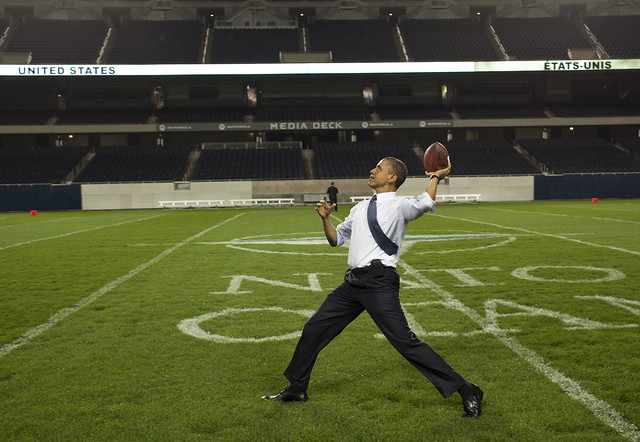July 24, 2012
[preserve] Michael Carroll on copyright and deigital preservation
Michael Carroll, from American University Washington College of Law, is talking about “Copyright and Digital Preservation: The Role of Open Licenses.” (Michael is on the board of Creative Commons.)
|
NOTE: Live-blogging. Getting things wrong. Missing points. Omitting key information. Introducing artificial choppiness. Over-emphasizing small matters. Paraphrasing badly. Not running a spellpchecker. Mangling other people’s ideas and words. You are warned, people. |
Michael begins with a comparison to environmentalism: Stewardship of valuable resources, and long-term planning. There are cognitive challenges, and issues in providing institutional incentives. (He recommends sucking in as much data as possible, and worrying about adding the metadata later, perhaps through crowdsourcing.)
Michael notes that copyright used to be an opt-in and opt-out system; you had to register, and deposit a copy. Then you had to publish with a ©; anything published before 1989 that doesn’t have the © is in the public domain. You had to renew after 28 years, and the majority of copyrights (60%) were not renewed. We therefore had a growing public domain.
The court in Golan upheld Congress’ right to restore copyright for works published outside the US. This puts the public domain at risk, he says. He also points to the Hathi case in which they’ve been sued for decisions they made about orphan works. There is a dangerous argument being made there that if archiving occurs within the library space, fair use goes away. The legal environment is thus unstable.
Now that copyright is automatic and lasts for 70 years after the author’s death, managing the rights in order to preserve the content is fraught with difficulty.
He reminds us that making a copy to preserve the work is unlikely to have market harm to the copyright owner, and thus ought to be legal under fair use, Michael says. “You ought to have a bias toward believing you have a Fair Use right to preserve things.”
He asks: “Can the preservation community organize itself to be the voice of tomorrow’s users on issues of copyright policy and copyright estate planning?” For orphan works, copyright term shortening, exceptions to DRM rules, good practices open licensing in the long term…
And he asks: How can you get the FBs and Googles et al. to support long-term preservation? Michael suggests marking things that already in the public domain as being in the public domain. Otherwise, the public domain is invisible. And think about “springing” licenses, e.g. an open license that only goes into effect after a set time or under a particular circumstance.









